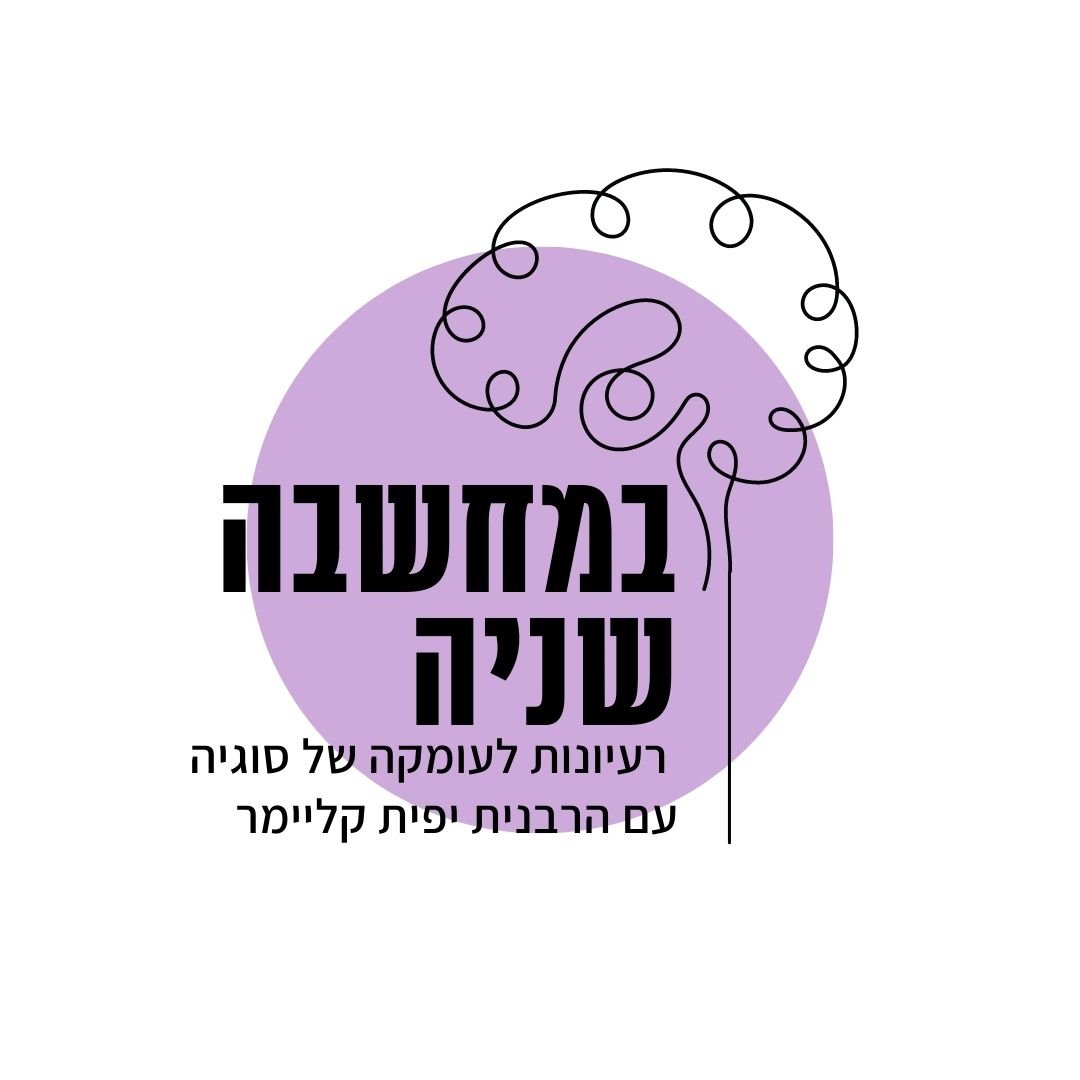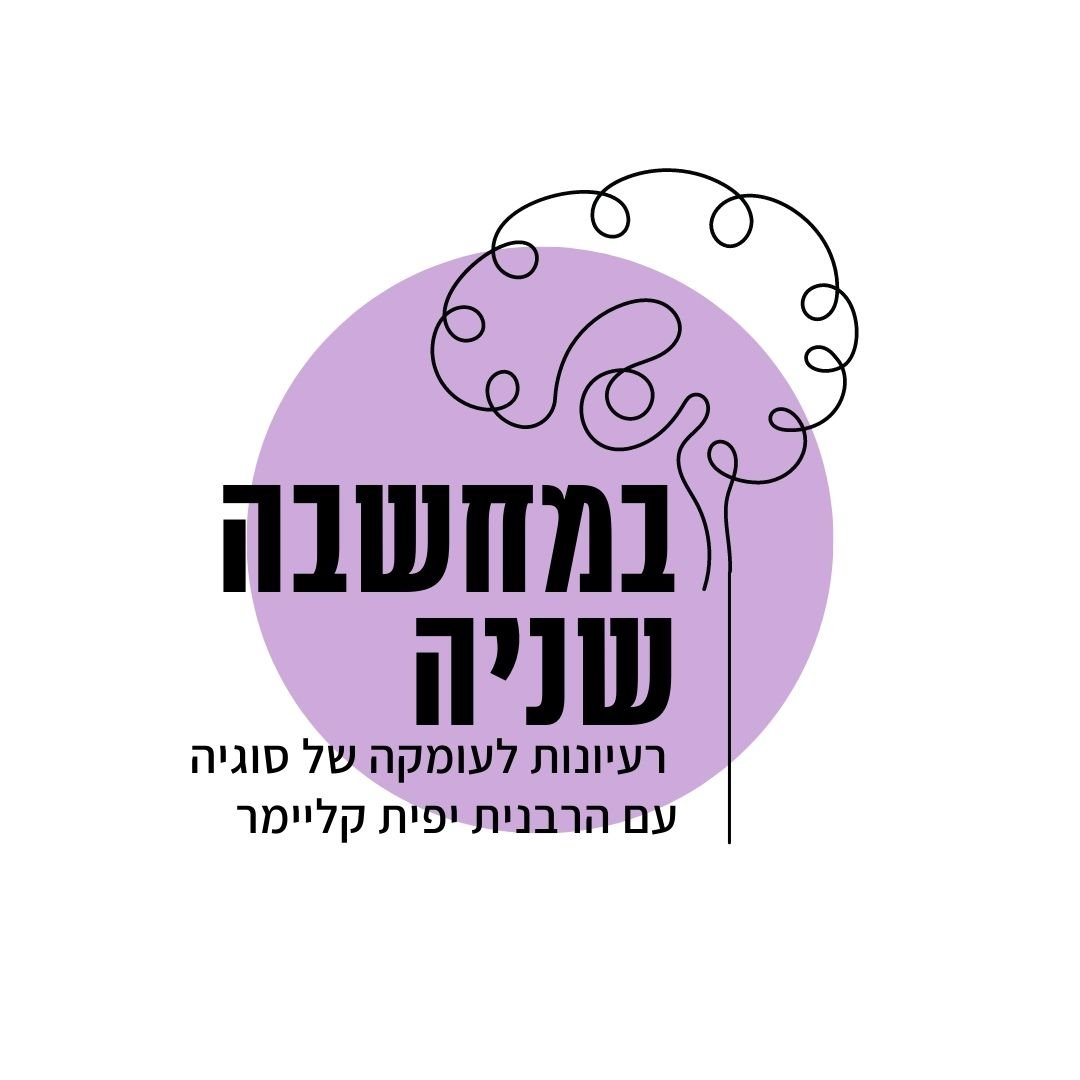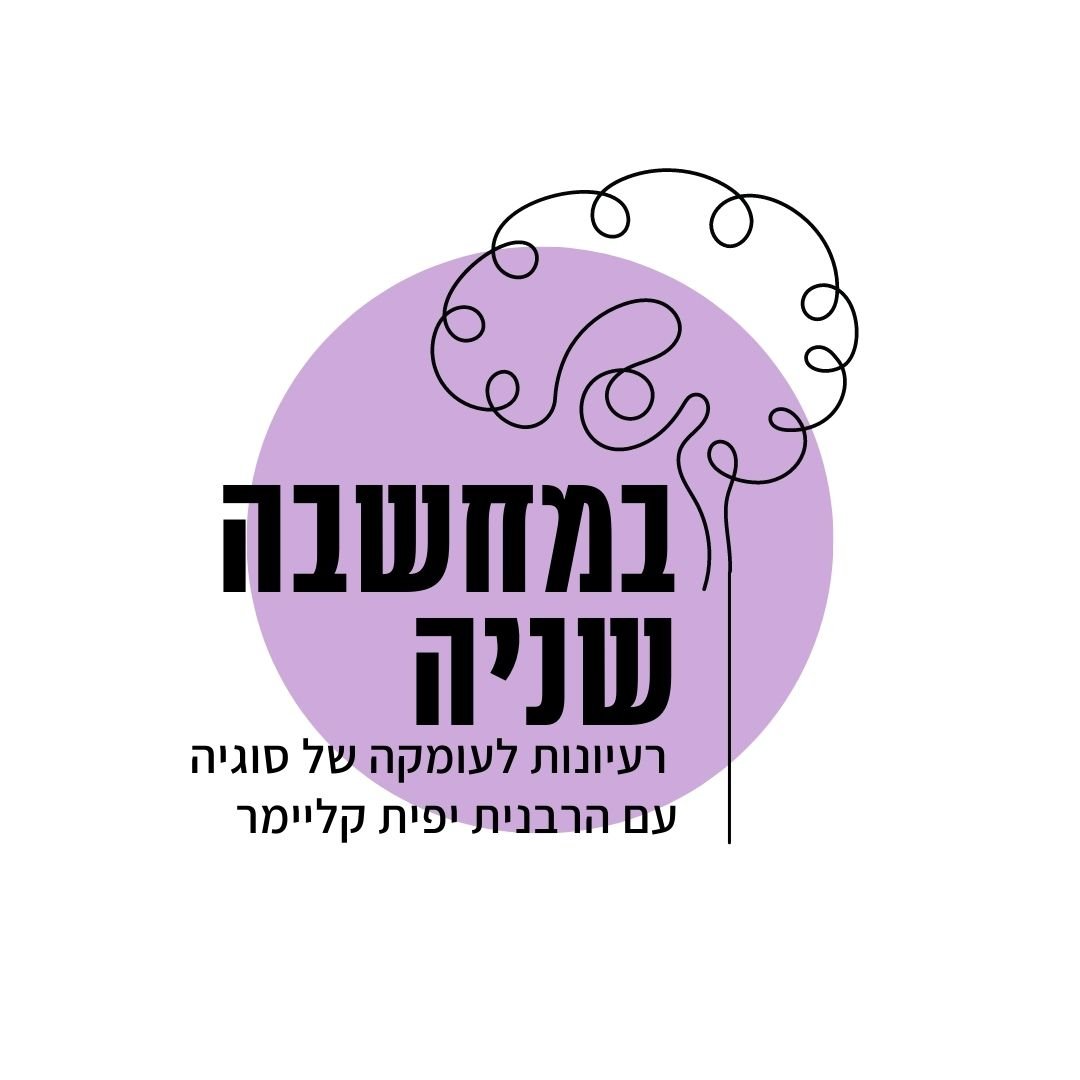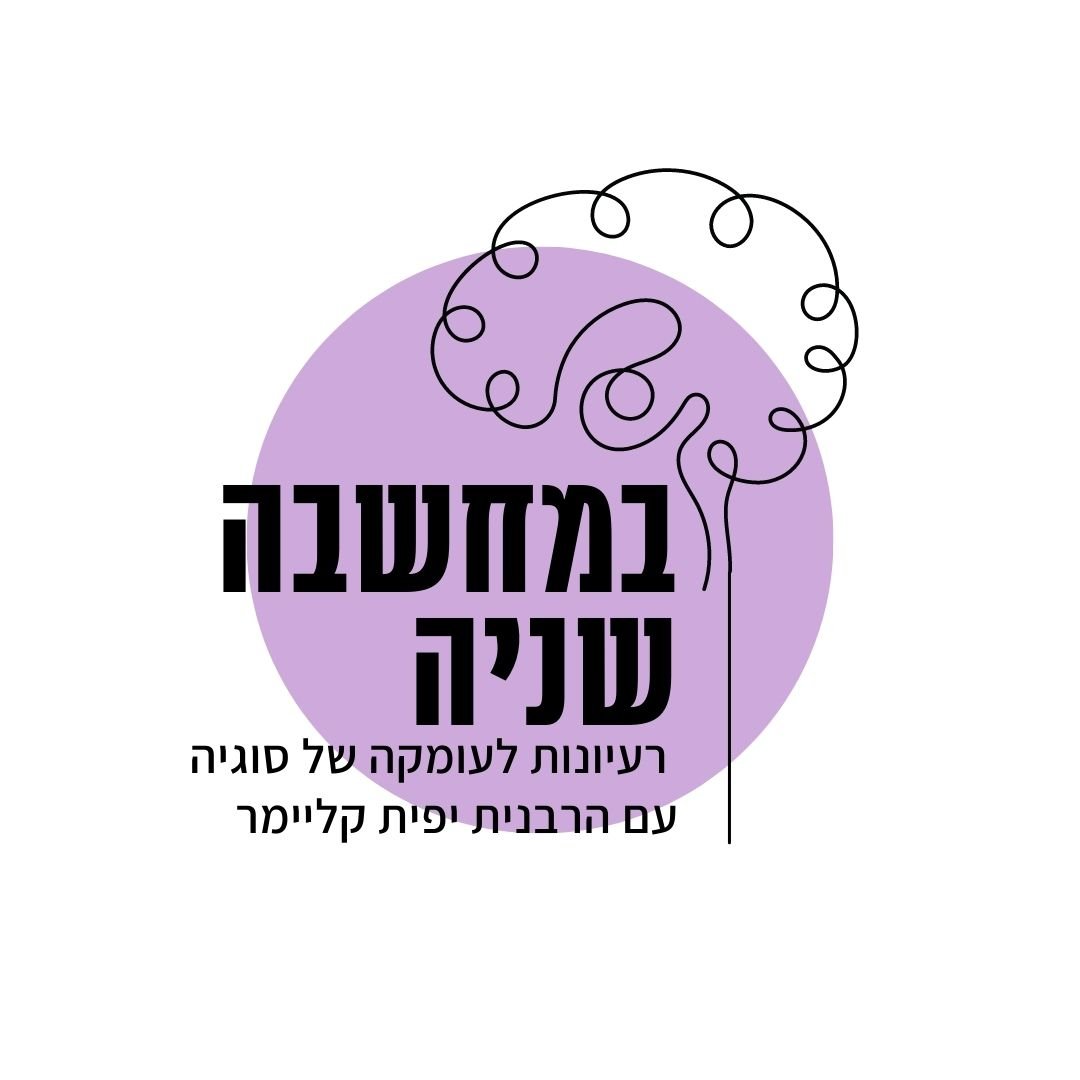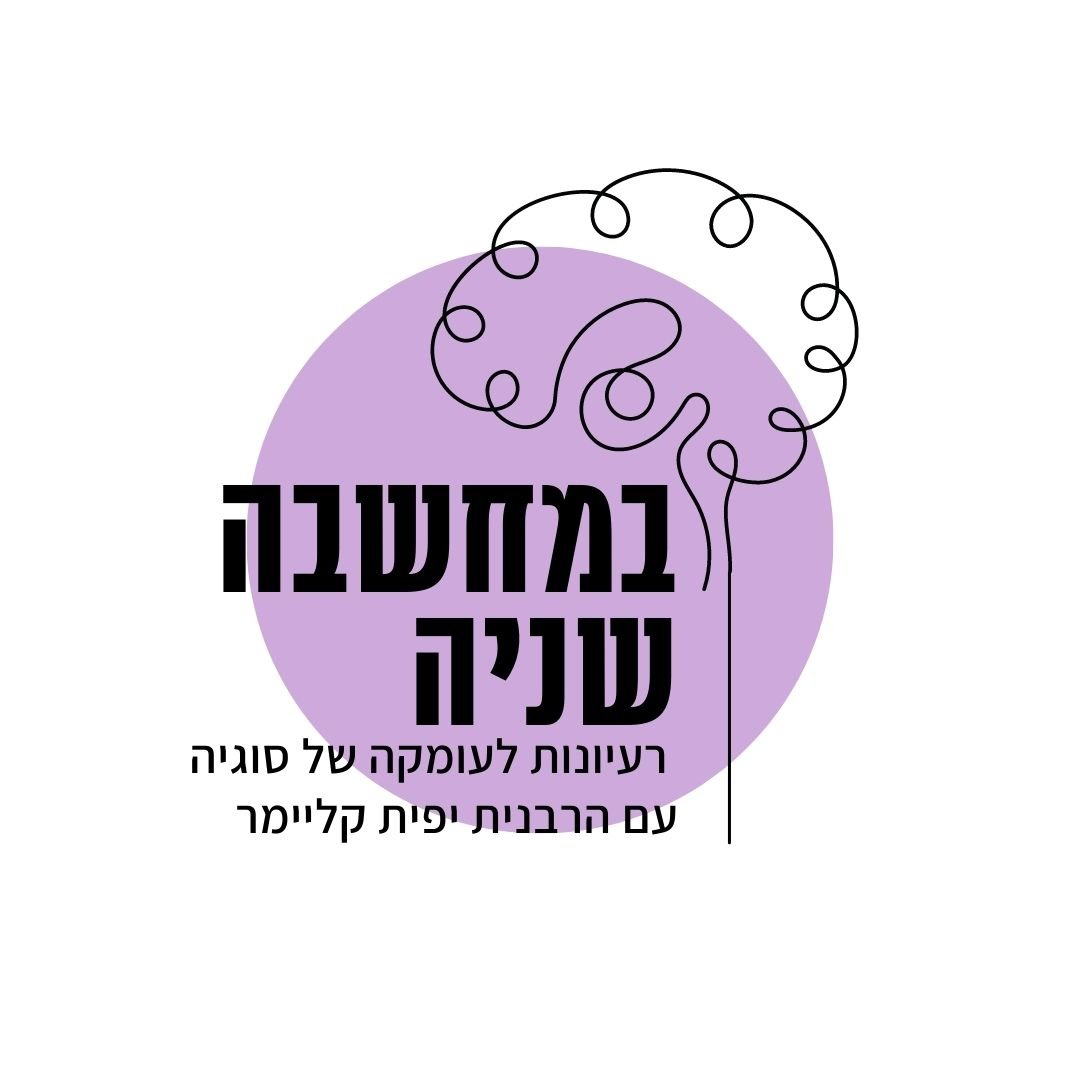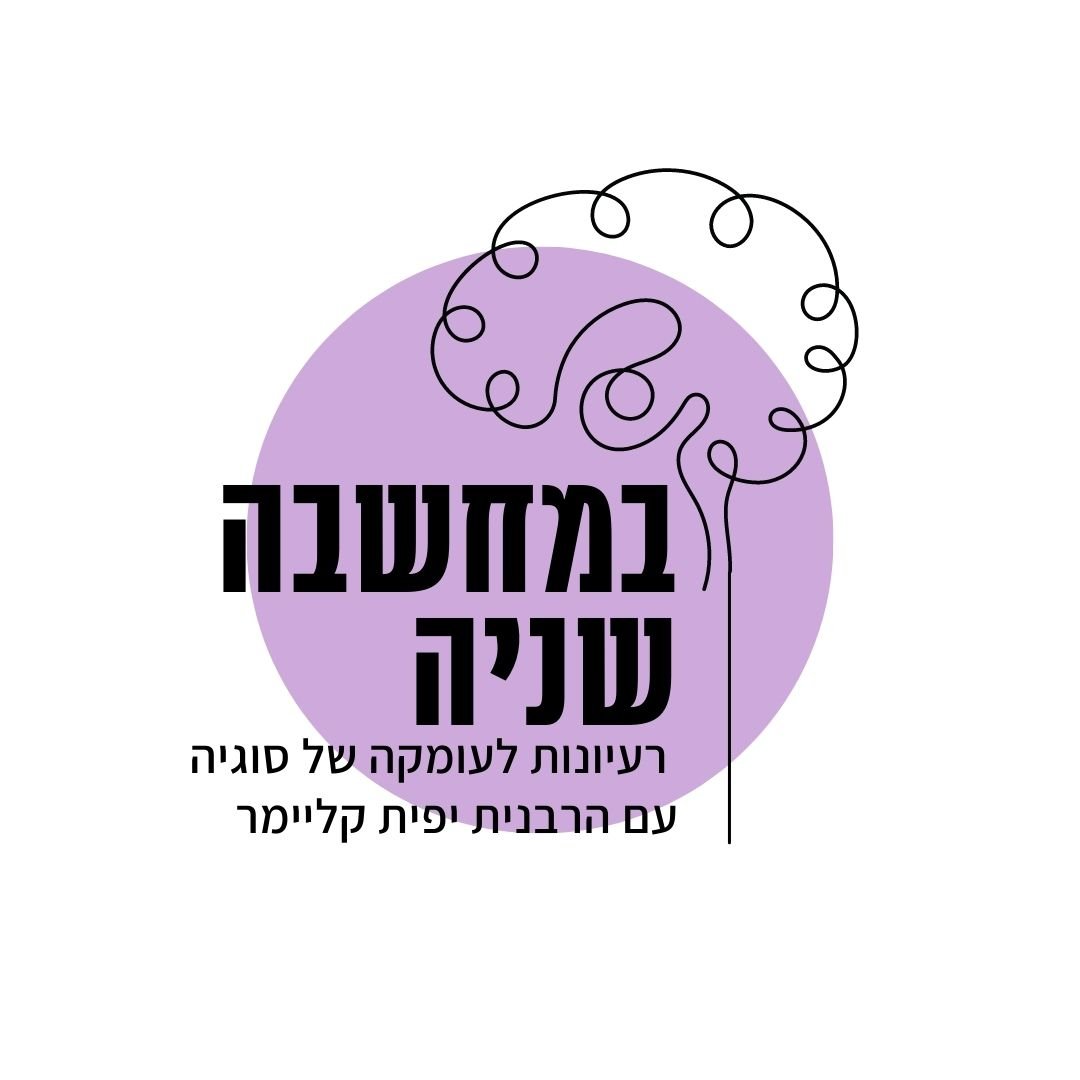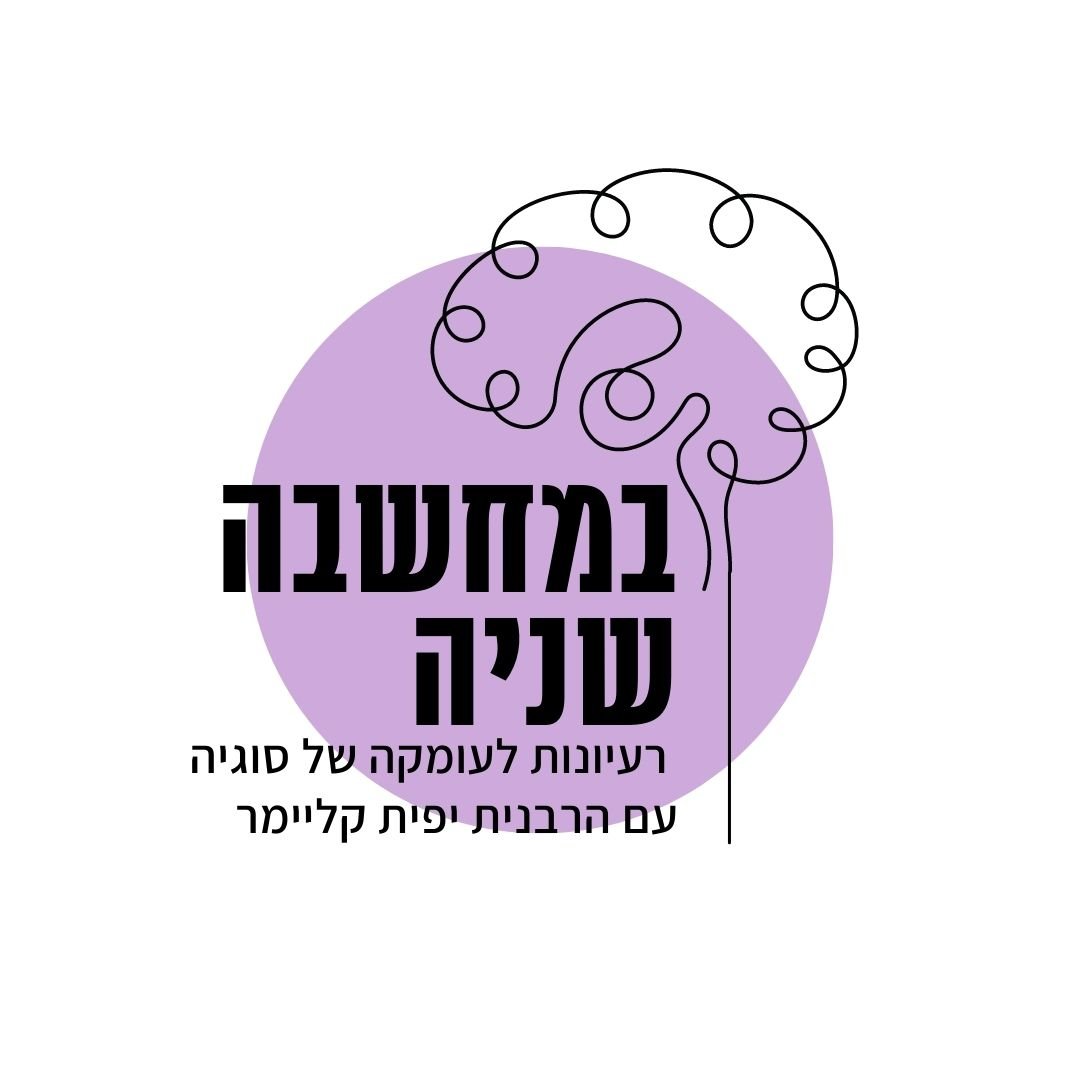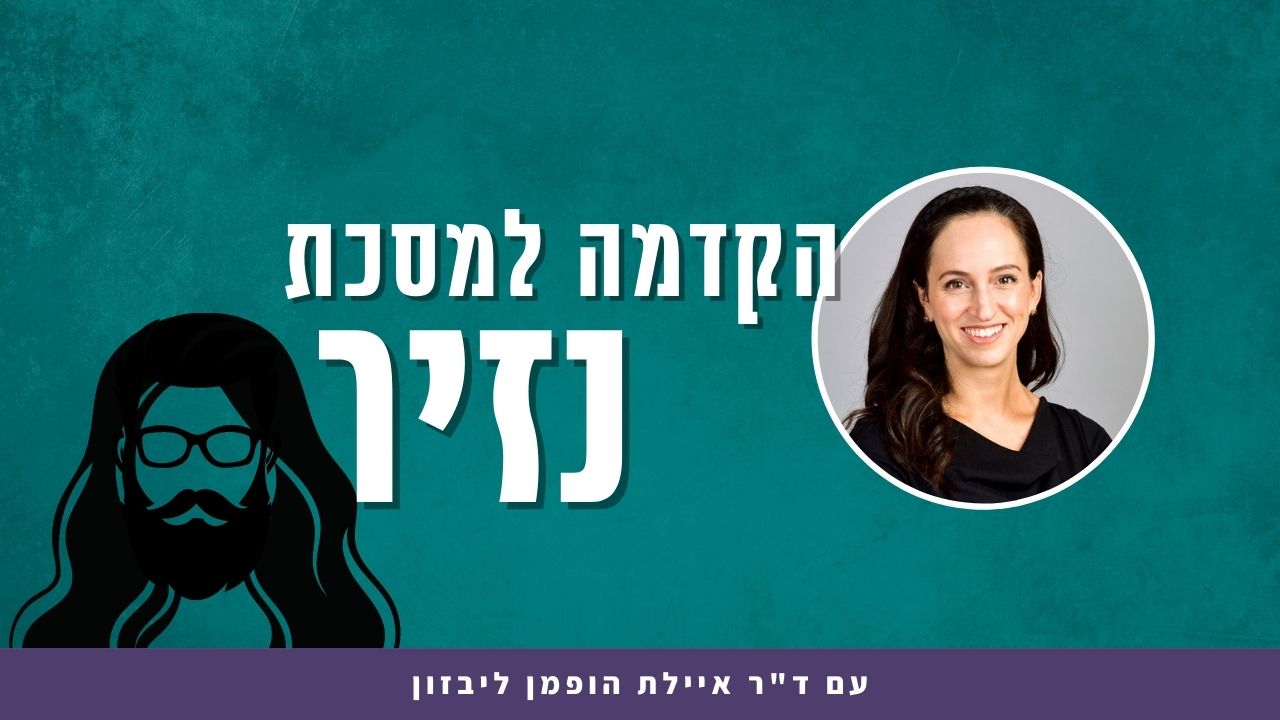נזיר לה
כְּדֶרֶךְ שֶׁפָּרַט לְךָ בְּנָזִיר ״מֵחַרְצַנִּים וְעַד זָג״. וּלְרַבִּי אֶלְעָזָר בֶּן עֲזַרְיָה דְּקָא מוֹקֵים לְהַאי ״מֵחַרְצַנִּים וְעַד זָג״ לוֹמַר שֶׁאֵינוֹ חַיָּיב עַד שֶׁיֹּאכַל שְׁנֵי חַרְצַנִּים וְזַג, פְּרָטָא מְנָא לֵיהּ! סָבַר לַהּ כְּרַבִּי אֶלְעָזָר דְּדָרֵישׁ מִיעֵט וְרִיבָּה.
in the manner that it specified with regard to a nazirite: “From pits to grape skin” (Numbers 6:4). The Gemara asks: And according to the opinion of Rabbi Elazar ben Azarya, who establishes this verse: “From pits to grape skin” (Numbers 6:4), as serving to say that a nazirite is liable only if he eats two grape seeds and a grape skin, if so from where does he derive the detail? It is unclear how he applies this method of a detail, a generalization, and a detail, as according to his interpretation, the phrase “from pits to grape skin” does not serve to limit the previous generalization but to state a different halakha. The Gemara answers: Rabbi Elazar ben Azarya holds in accordance with the opinion of Rabbi Elazar, who interprets this by saying that a verse restricts and amplifies.
וְאִי בָּעֵית אֵימָא כְּרַבָּנַן, דְּאִי סָלְקָא דַעְתָּךְ כִּדְאָמַר רַבִּי אֶלְעָזָר בֶּן עֲזַרְיָה, לִיכְתְּבֵיהּ רַחֲמָנָא לְהַאי ״מֵחַרְצַנִּים וְעַד זָג״ גַּבֵּי פְּרָטֵי, לְמַאי הִלְכְתָא כַּתְבֵיהּ בָּתַר כְּלָל? שְׁמַע מִינַּהּ לְמֵידַּיְינֵיהּ בִּכְלָל וּפְרָט.
And if you wish, say instead that Rabbi Elazar ben Azarya holds in accordance with the opinion of the Rabbis that this is a case of a detail, a generalization, and a detail. As, if it should enter your mind that the verse is merely teaching that which was stated by Rabbi Elazar ben Azarya, let the Merciful One write this phrase: “From pits to grape skin,” alongside the other details of wine and vinegar. For what halakha did the Torah write: “From pits to grape skin,” after the generalization? Conclude from it that you should derive this halakha by means of the method of a generalization and a detail.
וְאֵימָא כּוּלֵּיהּ לְהָכִי הוּא דַּאֲתָא! אִם כֵּן לִכְתּוֹב אוֹ שְׁנֵי חַרְצַנִּים, אוֹ שְׁנֵי זַגִּים, אוֹ חַרְצַן וְזָג. לְמַאי הִלְכְתָא כְּתַב רַחֲמָנָא ״מֵחַרְצַנִּים וְעַד זָג״? שְׁמַע מִינַּהּ לְמִידְרַשׁ בֵּיהּ כְּלָל וּפְרָט, וְאִיכָּא נָמֵי לְמִידְרַשׁ בֵּיהּ: עַד שֶׁיֹּאכַל שְׁנֵי חַרְצַנִּים וְזָג.
The Gemara asks: But if so, you can say that the entire phrase comes only for this purpose, for a generalization and a detail, and Rabbi Elazar ben Azarya should not derive his halakha, that a nazirite is liable only if he eats two grape seeds and a grape skin, from this verse at all. The Gemara answers that Rabbi Elazar ben Azarya would say: If so, let the Torah write either two grape seeds and two grape skins, with both terms in the plural, or a grape seed and a grape skin, with both terms in the singular. For what halakha did the Merciful One write: “From pits to grape skin”? Learn from it that one should interpret it in the manner of a generalization and a detail, and one can also interpret from it that a nazirite is liable only if he eats two grape seeds and a grape skin.
וְרַבִּי אֶלְעָזָר דְּדָרֵישׁ מִיעֵט וְרִיבָּה, פְּרָט וּכְלָל וּפְרָט מְנָא לֵיהּ?
The Gemara asks: And Rabbi Elazar, who interprets by the method of restriction and amplification that even tendrils and the leaves of a grapevine are included in the prohibition, from where does he derive the method of a detail, a generalization, and a detail?
אָמַר רַבִּי אֲבָהוּ, נָפְקָא לֵיהּ מֵהַאי קְרָא: ״וְכִי יִתֵּן אִישׁ אֶל רֵעֵהוּ חֲמוֹר אוֹ שׁוֹר אוֹ שֶׂה״ — פָּרַט, ״וְכׇל בְּהֵמָה״ — כָּלַל, ״לִשְׁמוֹר״ — חָזַר וּפָרַט. פְּרָט וּכְלָל וּפְרָט, אִי אַתָּה דָן אֶלָּא כְעֵין הַפְּרָט.
Rabbi Abbahu says: He derives it from this verse, which deals with a bailee: “And if a man deliver to his neighbor a donkey, or an ox, or a sheep, or any animal to guard, and it dies…the oath of the Lord shall be between them both” (Exodus 22:9). The phrase “a donkey, or an ox, or a sheep” is a detail; “or any animal” is a generalization that includes all animals; and in the phrase “to guard” the Torah detailed again. This is a detail, and a generalization, and a detail. In this case, you may deduce that the verse is referring only to items similar to the detail; i.e., items that can be guarded.
רָבָא אָמַר: נָפְקָא לֵיהּ מֵהַאי קְרָא: ״וְאִם מִן״ — פָּרַט. ״הַצֹּאן״ — כָּלַל, ״כְּבָשִׁים וְעִזִּים״ — חָזַר וּפָרַט,
Rava said: Rabbi Elazar derives the method of a detail, a generalization, and a detail from this verse: “And if his offering is from the flock, whether of the sheep or of the goats, for a burnt-offering, he shall offer it a male without blemish” (Leviticus 1:10). The phrase “and if his offering is from” is a detail, as it indicates part but not all of something, “the flock” is a generalization that includes animals that have been used sinfully, and when it stated: “Sheep,” and: “Goats,” the Torah has detailed again.
פְּרָט וּכְלָל וּפָרַט, אִי אַתָּה דָן אֶלָּא כְעֵין הַפְּרָט.
This is a detail, and a generalization, and a detail, and therefore you may deduce that the verse is referring only to items similar to the detail. The details teach that only animals that copulated with a person may not be brought as offerings.
אֲמַר לֵיהּ רַב יְהוּדָה מִדִּיסְקַרְתָּא לְרָבָא, וְלֵילַף מִן הָדֵין קְרָא: ״מִן״ — פָּרַט, ״הַבְּהֵמָה״ — כָּלַל, ״בָּקָר וָצֹאן״ — חָזַר וּפָרַט. פְּרָט וּכְלָל וּפְרָט, אִי אַתָּה דָן אֶלָּא כְעֵין הַפְּרָט.
Rav Yehuda of Diskarta said to Rava: And let Rabbi Elazar derive the method of a detail, a generalization, and a detail from this earlier verse, which appears in the same chapter: “From animals, from the herd or from the flock, you shall bring your offering” (Leviticus 1:2), in the following manner: “From” is a detail that excludes an undomesticated animal; “animals” is a generalization which includes undomesticated animals (see Deuteronomy, chapter 14); and when it states: “Herd,” and: “Flock,” the Torah has detailed again. This is a detail, and a generalization, and a detail, and therefore you may deduce that the verse is referring only to items similar to the detail, i.e., domesticated animals.
אֲמַר לֵיהּ: מִן הַאי לֵיכָּא לְמִשְׁמַע מִינַּהּ, דְּאִי מֵהָתָם, הֲוָה אָמֵינָא: ״הַבְּהֵמָה״ —
Rava said to Rav Yehuda of Diskarta: One cannot derive the method of a detail, a generalization, and a detail from this verse, as if the source were from there, I would say the phrase “animals”
חַיָּה בִּכְלַל בְּהֵמָה.
is referring even to undomesticated animals, as an undomesticated animal is included in the general category of animal.
אֲמַר לֵיהּ: חַיָּה בִּכְלַל בְּהֵמָה? הָא כְּתִיב ״בָּקָר וָצֹאן״, וְהָוֵה לֵיהּ פְּרָט וּכְלָל, וְאִי אַתָּה דָן אֶלָּא כְעֵין הַפְּרָט!
Rav Yehuda of Diskarta said to Rava: How can you suggest that in this verse an undomesticated animal is included in the general category of animal? It is written: “Herd” and: “Flock,” and this entire phrase is a detail, and a generalization, and a detail, from which you may deduce that the verse is referring only to items similar to the detail, which are herd and flock, not undomesticated animals.
וּמְנָלַן דְּהָכִי הוּא? דְּתַנְיָא:
§ The Gemara asks: And from where do we derive that it is so, that in the methodology of generalizations and details, the generalizations are similar to the details? It is as it is taught in a baraita: The verse states with regard to the mitzva to bring money for the second tithe to Jerusalem: “And you shall bestow the money on all that your heart desires, on cattle, on sheep, on wine, and on strong drink, and on whatever your soul requests” (Deuteronomy 14:26).
״וְנָתַתָּ הַכֶּסֶף בְּכֹל אֲשֶׁר תְּאַוֶּה נַפְשְׁךָ״ — כָּלַל, ״בַּבָּקָר וּבַצֹּאן וּבַיַּיִן וּבַשֵּׁכָר״ — פָּרַט, ״וּבְכֹל אֲשֶׁר תִּשְׁאָלְךָ נַפְשֶׁךָ״ — חָזַר וְכָלַל.
The baraita elaborates: The phrase “And you shall bestow the money on all that your heart desires” is a generalization, as no particular type of food is specified. The phrase “on cattle, on sheep, on wine, and on strong drink” is a detail, as specific foods are mentioned. And when the verse concludes: “On whatever your soul requests,” it then generalized again, as no specific type of food is stated.
כְּלָל וּפְרָט וּכְלָל, אִי אַתָּה דָן אֶלָּא כְּעֵין הַפְּרָט: מָה הַפְּרָט מְפוֹרָשׁ פְּרִי מִפְּרִי וְגִידּוּלֵי קַרְקַע — אַף כֹּל פְּרִי מִפְּרִי וְגִידּוּלֵי קַרְקַע.
Since the verse is formulated as a generalization, and a detail, and a generalization, you may deduce that it is referring only to items similar to the detail. Just as the items mentioned in the detail are clearly defined as the produce of produce, i.e., not only the produce itself but also items that come from it, such as grapes from a seed, and they are also items grown from the ground, as all of these items grow from the ground or receive their main sustenance from it, so too, the generalization includes all items that are the produce of produce and are grown from the ground. This includes birds, but it does not include fish, water, or salt.
מִכְּדִי כְּלָל וּפְרָט וּכְלָל כְּעֵין פְּרָטָא דָּיְינִינַן, כְּלָלָא בָּתְרָא מַאי אַהֲנִי? אַהֲנִי לְאוֹסוֹפֵי כׇּל דְּדָמֵי לֵיהּ.
§ The Gemara discusses a series of problems with regard to these and other methods of halakhic exegesis: Now, in the case of a generalization, and a detail, and a generalization, one derives that all items which are like the detail are included. However, if that is so, what purpose does the last generalization stated in the verse serve? The same conclusion would be reached if the verse had stated merely a generalization and a detail. The Gemara answers: The purpose of the last generalization is to add all that is similar to it, i.e., even those articles or cases not explicitly listed among the details.
וְתוּ: פְּרָט וּכְלָל וּפְרָט כְּעֵין הַפְּרָט דָּיְינִינַן, פְּרָטָא בָּתְרָאָה מַאי אַהֲנִי! אִי לָאו פְּרָטָא בָּתְרָאָה, הֲוָה אָמֵינָא: נַעֲשֶׂה כְּלָל מוּסָף עַל הַפְּרָט.
And furthermore, in the case of a detail, and a generalization, and a detail, one again derives that all items which are like the detail are included. If so, what purpose does the last detail stated in the verse serve? The same conclusion would apply if there was simply a detail and a generalization. The Gemara answers: If it were not for the last detail, I would say that the generalization becomes added to the detail, which is broadened in all possible ways. Therefore, the last detail limits the generalization to items or cases that are similar to the detail.
וּמִכְּדֵי, תְּרֵין כְּלָלֵי וּפְרָטָא וּתְרֵין פְּרָטֵי וּכְלָלָא — (כְּלָלָא) כְּעֵין פְּרָטָא דָּיְינִינַן, מַאי אִיכָּא בֵּינֵי וּבֵינֵי?
The Gemara continues this line of questioning. And now that it has been established that both with regard to two generalizations and a detail, i.e., a generalization, a detail, and a generalization, and two details and a generalization, i.e., a detail, a generalization, and a detail, one derives that all items that are like the detail are included, what difference is there between this method and that one? The two methods are apparently identical.
אִיכָּא דְּאִילּוּ תַּרְתֵּין כְּלָלֵי וּפְרָטָא, אִי אִיכָּא פְּרָטָא דְּדָמֵי לֵיהּ אֲפִילּוּ בְּחַד צַד — מְרַבִּינַן, תְּרֵי פְּרָטֵי וּכְלָלָא, אִי אִיכָּא פְּרָטָא דְּדָמֵי מִשְּׁנֵי צְדָדִין — מְרַבִּינַן, בְּחַד צַד — לָא מְרַבִּינַן.
The Gemara answers: There is a difference between them, as whereas in a case of two generalizations and a detail, if there is another detail that is similar to the detail specified in the verse even in one aspect, one includes it, due to the two generalizations. By contrast, in the case of two details and a generalization, if there is another detail that is similar to the one mentioned in the verse in two aspects, one includes it. However, if it is similar in only one aspect one does not include it, as the halakha is limited by two details.
מִכְּדִי פְּרָט וּכְלָל — נַעֲשֶׂה כְּלָל מוּסָף עַל הַפְּרָט, וְאִיתְרַבִּי כֹּל מִילֵּי. וּמִיעֵט וְרִיבָּה נָמֵי — רִיבָּה הַכֹּל, וְאִיתְרַבִּי כֹּל מִילֵּי. מַאי אִיכָּא בֵּין מִיעֵט וְרִיבָּה לִפְרָט וּכְלָל?
The Gemara asks another question: Now, in the method of a detail and a generalization, the generalization becomes added to the detail, and all matters are included by the generalization. And the method of restriction and amplification also amplifies and includes everything, and therefore all matters are included in both cases. If so, what difference is there between the method of restriction and amplification and that of a detail and a generalization?
אִיכָּא, דְּאִילּוּ פְּרָט וּכְלָל — מְרַבִּינַן אֲפִילּוּ עָלִין וְלוּלָבִין. וּמִיעֵט וְרִיבָּה, לוּלָבִין — אִין, עָלִין — לָא.
The Gemara answers: There is the following difference, as whereas in the method of a detail and a generalization one includes and renders forbidden to a nazirite even leaves and tendrils of the vine, with the method of restriction and amplification one includes less, as tendrils, yes, they are included in the prohibition, whereas leaves, no, they are not included.
אָמַר רַבִּי אֲבָהוּ אָמַר רַבִּי יוֹחָנָן: כׇּל אִיסּוּרִין שֶׁבַּתּוֹרָה אֵין הֶיתֵּר מִצְטָרֵף לְאִיסּוּר, חוּץ מֵאִיסּוּרֵי נָזִיר, שֶׁהֲרֵי אָמְרָה תּוֹרָה: ״מִשְׁרַת״.
§ Rabbi Abbahu says that Rabbi Yoḥanan says: With regard to all prohibitions that are written in the Torah, a permitted substance does not combine with a forbidden substance. If one eats a permitted food with a forbidden food and together they constitute the minimum prohibited measure, he is exempt from punishment for this act of consumption. This principle applies to all halakhot except for the prohibitions of a nazirite, who is liable for eating a mixture of that kind, as the Torah said with regard to a nazirite: “Neither shall he drink anything soaked in grapes” (Numbers 6:3). This verse indicates that a nazirite is prohibited from consuming not only wine and vinegar, but also any food that was soaked in these liquids.



